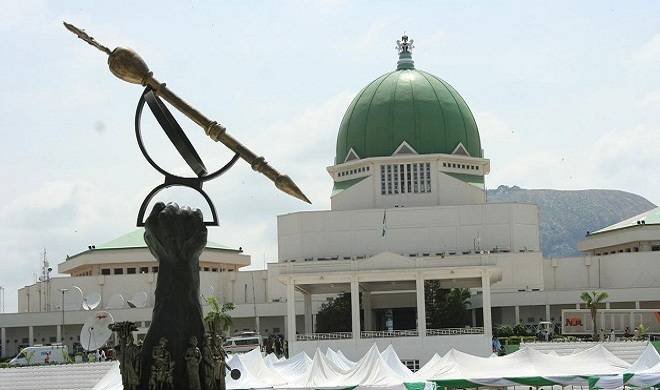I don’t subscribe to columnists and opinion leaders who popularly blame Nigerian politicians and party candidates seeking office, for coming short on “issue-based electoral campaigns”. Because, that basically is politics in its inglorious essence- politicians are partaking in whatever inanities that will get them elected into office. The citizens and the electorates should be faulted squarely for not vigorously petitioning on issues they judiciously demand, and voting according to that partisan line, regardless of the sentiments which the candidates indulge. To rate Nigeria’s democracy, let’s monitor the citizens’ campaign appeals and evaluate their democratic credence. Let us ask the electorates how well they participate in the democratic process, beyond simplistic political rhetoric.
What do the citizens talk about with regards to justifications of their political party leanings and candidates’ choices? Does the average Nigerian citizen or electorate project their favorite candidates’ economic prudence or public service performance or managerial acumen? Mostly no. A palpable pointer is how people are narrow-mindedly obsessed with calumny against the personalities of two candidates, APC’s Muhammadu Buhari and PDP’s Atiku Abubakar, as though not more than ten thousand candidates are going to be on the ballots, vying for more than a thousand elective positions in the country.
Observers on Nigerian political spaces will easily agree that going by popular public discussions in the last 50 days since INEC lifted the ban on electoral campaigns, the citizens have been blindly echoing politicians in their dirty politicking. Like politicians, they collectively scratch the surface by dwelling on inconsequential issues of a candidate’s visa eligibility, a president not attending a former president’s funeral, and INEC’s appointment of a head of collation center. Nothing is more farfetched and effectively remote to the common yearnings of Nigerian masses. This goes to show how, conversely, politicians are the ones moderating the citizens’ political debates to their selfish advantage. It is ironic that politicians are not the best promoters of democracy, because politics is only a crooked element of the democratic process, which itself is a system that supposes to enable the outvoting of bad politicians, and entrenching good, representative and responsive leadership.
One staggering paradox in citizens’ democratic engagement is that before this election season, people have as usual gone all over the place digging deeper for democratic substance, lamenting insecurity and corruption in the land, blaming the present elected leaders. In fact, they continue to do so today as if they are not certainly faced with a perfect window to addressing those critical issues in the ballot box. They forget that their challenges are problems which their collective decision could curtail, and that decision-making time comes and goes per their voting prerogative. How do the citizens forget their constitutional entitlements within the scope of a democratic state? Is campaign season not the best time to register their demands in the minds of future governors, legislators, and president?
The poor political judgment on the part of the citizens is what abates the indiscretions of candidates regarding campaign issues and attitudes. In fact, political office seekers sometime do better at coating their lame campaign rhetoric in sweet clichés of promising “dividends of democracy” like, infrastructure, good healthcare and improved welfare. While they do so however, the citizens shamelessly endorse candidates for nothing else than base sentiments ranging from ethnic, religious, gender, and other demographic parity. Except for occasional instances where journalists confront the candidates, nobody seems to challenge these future office-holders on their plans for improved rule of law, press freedom, quality legislative representation, or public accountability.
This reality is despite that 2019 marks a milestone of two decades of electoral democracy in Nigeria, and having completed 5 quadrennial general elections cycles so far, the citizens have seemingly not attained significant capacity to demand via campaign pleas, for something bigger and better than seasonal politicking from political parties and their nominees. Unless the electorates learn how to appeal to the candidates on what their collective interests are and hold them to task, the room for political fraud and democratic irresponsibility could only get wider. While politicians indulge in politics, the citizens should learn to practice true democracy.
Rather than electoral debates be about petty competitions in negativity, factionalism, and baseless allegations, citizens should confront party candidates at every level on concrete issues. People in the Niger-Delta regions should quiz their gubernatorial and legislative office candidates’ policy thrust on climate and the environment. Electorates in North-Central states should confront their candidates at all levels about their planned solutions for farmer-herder crisis. Citizens everywhere should probe gubernatorial and legislative candidates in the North-West about their policy answers on the Almajiri question. Nationally, Nigerians should ask how candidates for the National Assembly are preparing to address national issues regarding kidnapping, banditry, restructuring, resource control, secessionist agitations, HIV/AIDS, port congestion, and desertification.
In rating 20 years of democracy in Nigeria, obviously, Nigerians have much to understand about the conspicuous line between politics and democracy. They need to not all be politicians, but all should be good participants in the democratic space, fully capable of dichotomizing politics and democracy.
Idris wrote this piece from Abuja. He can be reached on Twitter @Mazhun

 Join Daily Trust WhatsApp Community For Quick Access To News and Happenings Around You.
Join Daily Trust WhatsApp Community For Quick Access To News and Happenings Around You.



